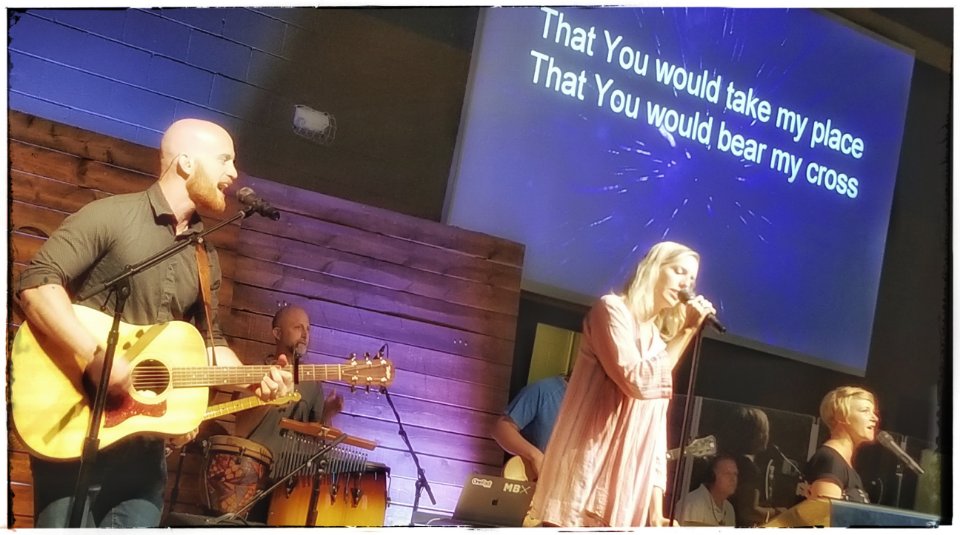
We live in a culture that values convenience. Just yesterday, my wife and I went to our local grocery store and were met with a rack of self-scanners when we walked in. We were then able to walk about the store, scan the items we desired to purchase, and bag them ourselves while still shopping. When we were done shopping, we simply scanned the self-check-out kiosk, paid, and walked out. Talk about convenient – my introverted self did not even need to interact with another human being!
At Faith Church West we recognize that Relationships Aren’t Efficient (Core Value #3). As one who enjoys his alone time, I understand this concept very well. On top of that, efficiency and convenience are my love languages (those are in Gary Chapman’s book, right?) – I’m always searching for a better way to do something. But relationships have a tendency to side-step efficiency and bring about thoughts like, “you are not responding the way I planned for you to respond” or any other number of expectation-crushing thoughts that enter my head when interacting with others.
Biblical Concept?
In Mark 9:19, Jesus is quoted saying, “O unbelieving generation, how long shall I be with you? How long shall I put up with you?” Jesus was not afraid to vocalize the strains of relationship. Whenever sin is present, there will be inefficiency, strain, and frustration. In this example, there was One who was sinless – so imagine when two or more sinners get together!
Yet Jesus did not sit in that frustration long; the next thing He said was “Bring him to Me!” – referring to a possessed child. The inconvenience that comes with relationships drove Christ towards action, not away from the situation. Jesus often speaks truth into a situation and then does something about it.
Relationships Will Require Time
A lot is said of time – it’s something we cannot lose or get more of, time is money, it’s the most precious resource, etc. One thing is for sure: everything is vying for our time. Relationships are not exempt from this rule.
Building off Faith Church West’s second Core Value , “No One Alone,” we are called to live in community. Doing so requires pouring time into intentional relationships with one another. “Intentional” is a significant word in that previous sentence; in a world that is vying for our time, we must be very deliberate with setting time aside for relationship. If you have not discovered this already, you will soon find that implementing this will be inefficient.
Relationships Will Sacrifice Comfort and Self
Bluntly put, relationships seem inefficient most often because of our own selfishness. This past spring, I was on my way with a group of students to go white water rafting in Tennessee. One of the guides said, “If you fall in the river, do your best to swim to one of us – self-rescues are the most efficient, because no one loves you more than you love you.” I didn’t realize before that moment that I was in the presence of a theologian.
In all seriousness, we do love ourselves a great deal and much of what we do throughout the day either serves our desire for comfort or just plain self. Jesus exploits this in Mark 12:31 when He describes the second greatest commandment, “You shall love your neighbor as yourself.” I hope that, every time you read this, you have a mini “ouch” moment as Jesus calls us out for our immense selfishness (no, this passage is not an excuse to love yourself more).
Christ is calling us into relationship with one another. Would your time show that you love others as much as you love yourself? If not, the first items that need placed on the sacrificial altar are comfort and self (Romans 12:1).
Relationships Are Worth It
Now that you have been inundated with the costs of relationships, let’s talk a moment about the benefits. We find a great deal of “one another’s” in Scripture – if you are looking for a topical study, tracing instances of “one another” in the New Testament provides a great deal of relationship warnings, challenges, and benefits.
We find two of those “one another’s” in Hebrews 10:24-25 – “and let us consider how to stimulate one another to love and good deeds, not forsaking our own assembling together, as is the habit of some, but encouraging one another; and all the more as you see the day drawing near.”
Though inconvenient, inefficient, frustrating, and downright messy, Christ-centered relationships are the fertile soil in which love and good deeds sprout. As we pour time and self-sacrifice over our relationships, we will see growth in ways only our Savior could bring about!
Take an inventory of your time and begin intentionally allocating a great deal of it towards building relationships. Practice hospitality with a new couple. Start mentoring a younger believer and be mentored, yourself. Find other ways to build relationship and love “one another.”
 Church
Church